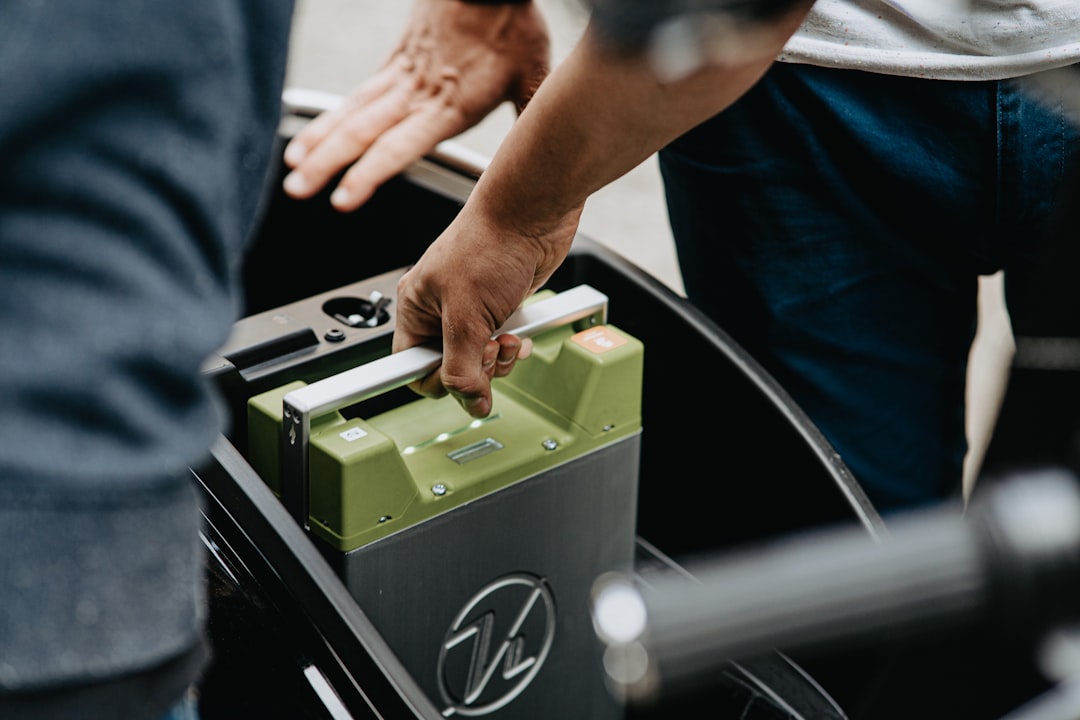 Photo from Unsplash
Photo from Unsplash
Originally Posted On: https://pilotjohn.com/blog/lithium-ion-vs-lead-acid-batteries
Ground Support Equipment (GSE) and industrial vehicles play a vital role in keeping your airport’s operations safe and efficient. Alone, aircraft tugs, or aircraft tractors, are critical in maneuvering aircraft from and to ramps, hangars, and gates.
One of the most important characteristics of your tugs and GSE to consider is whether they are powered by lithium-ion batteries or lead-acid batteries. Both of these options have unique features, benefits, and downsides.
In this guide, we’ll cover all you need to know to choose the best option for your operation, and we’ll answer any questions you may have. For anything else – including custom guidance – don’t hesitate to get in touch with the team at Pilot John International.
In the fast-paced world of ground support and industrial operations, every minute counts. Your equipment needs to be reliable, efficient, and ready to move when you are. That’s where the battery comes in, and choosing the right one can make a significant difference in your productivity and bottom line. Today, we’ll delve into the two main contenders in the battery ring: lithium-ion and lead-acid.
Understanding the Fundamentals of Batteries:
Lithium-Ion: Imagine a powerhouse packed into a compact package. Lithium-ion batteries boast impressive energy density, meaning they store more power per unit weight compared to their lead-acid counterparts. This translates to longer runtimes, quicker charging times, and ultimately, more work done. Their lightweight nature also reduces strain on your vehicles, enhancing performance and lifespan.
Lead-Acid: The stalwart workhorse of the battery world, lead-acid offers decent power at a lower initial cost. However, they lag behind in terms of energy density, leading to shorter runtimes and longer charging periods. Additionally, their heavier weight can impact vehicle performance and require regular maintenance.
Fueling Your Fleet:
Let’s put theory into practice by comparing the Eagle eTT-8X Electric Tug with both battery options:
Lithium-Ion: A single 315Ah lithium battery offers an impressive runtime of up to 6 hours and can be fully charged in under 2 hours. The dual 630Ah setup doubles the runtime to 12 hours with a similar charging time. This translates to fewer battery swaps, more operational time, and less downtime.
Lead-Acid: While the 510Ah lead-acid option provides a decent runtime of 3-4 hours, charging takes significantly longer – typically 6-8 hours. This can necessitate additional batteries or extended downtime for charging, potentially impacting productivity.
 Beyond Ground Support:
Beyond Ground Support:
The benefits of lithium-ion extend beyond the tarmac. Consider the versatile Motrec MC480 industrial vehicle:
Lithium-Ion: With a single 80V 275Ah lithium battery, the MC480 can operate for 6-8 hours before needing a quick 1-2 hour charge. This makes it ideal for intensive operations and eliminates the need for battery swaps during shifts.
Lead-Acid: While the standard 80V 510Ah lead-acid setup offers a runtime of 4-5 hours, charging takes a hefty 8-10 hours. This can significantly impact daily operations and require additional batteries for continuous use.
Beyond the Numbers:
While performance is crucial, other factors can influence your choice:
Environment: Lithium-ion boasts superior temperature tolerance, performing well in extreme conditions. Lead-acid batteries can struggle in extreme heat or cold.
Maintenance: Lithium-ion batteries require minimal maintenance, saving you time and resources. Lead-acid batteries need regular electrolyte checks and topping, adding to operational costs.
Lifetime Cost: While the initial cost of a lithium-ion battery might be higher, its longer lifespan, superior efficiency, and reduced maintenance often make it a more cost-effective choice in the long run.
Making the Right Choice:
Ultimately, the best battery for your operation depends on your specific needs and priorities. Consider your typical usage patterns, operating environment, and budget. Our expert sales team is always here to help you navigate the options and find the perfect battery solution for your ground support or industrial fleet.
Bonus FAQs About Batteries:
What electrical voltage is required to charge the ETT-8X single lithium battery?
The charger for the ETT-8X lithium battery option can only be used on 480V 3-Phase and ONLY in the hangar.
What are the power requirements for the SVS-style lithium charger?
The eTT-8X charger operates on standard 120V or 240V AC power.
What are some battery management options (BMODs):
Depending on your needs, various battery management options are available for lead-acid batteries, offering features like automatic watering and temperature monitoring.
Remember, we’re always here to answer your questions and help you choose the right battery for your success. Contact us today and let’s fuel your fleet for a productive future!





